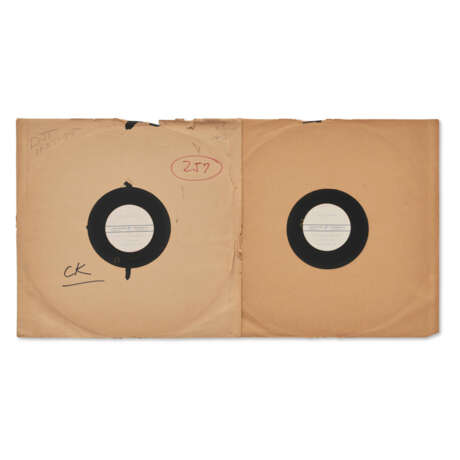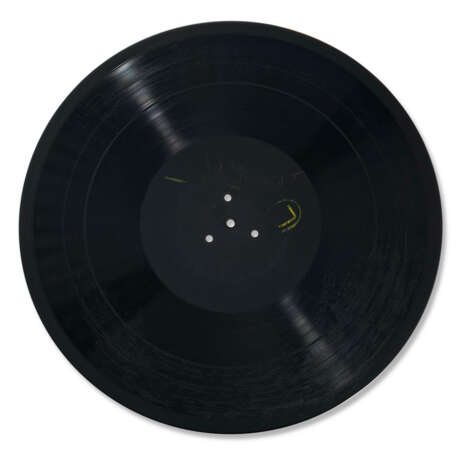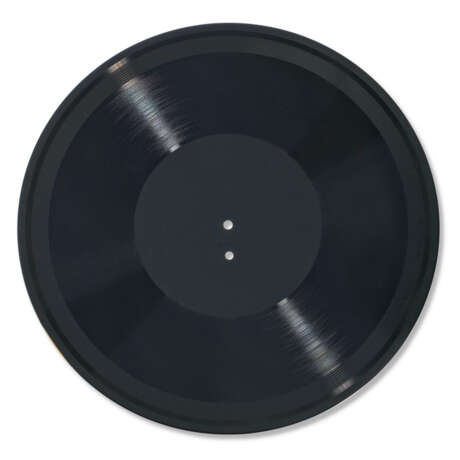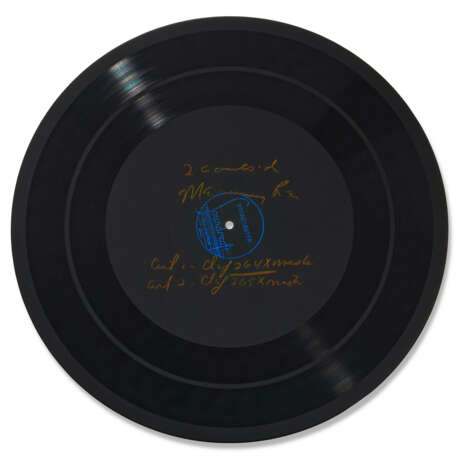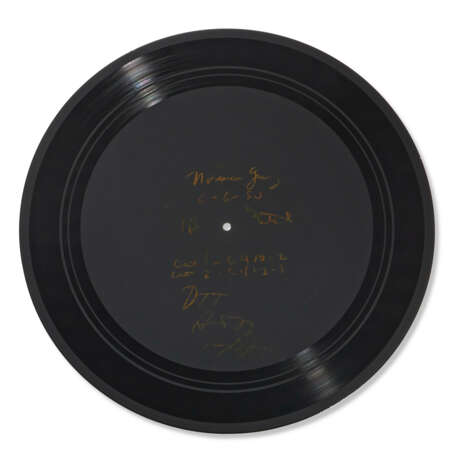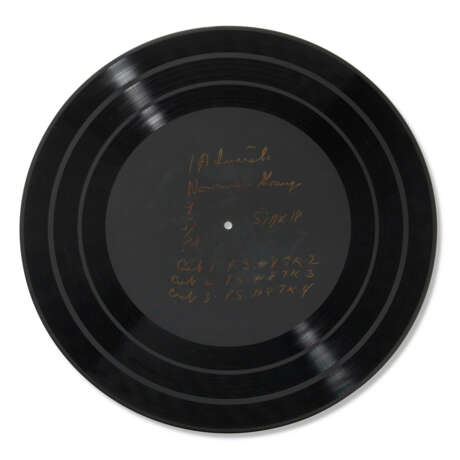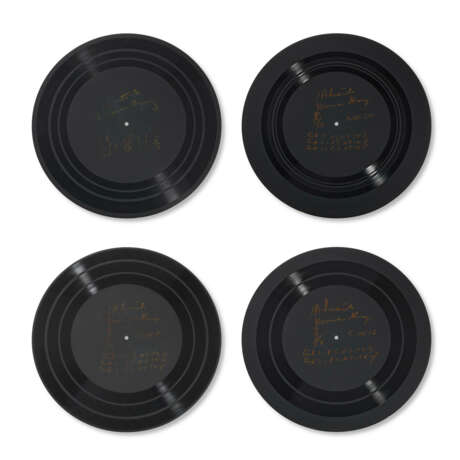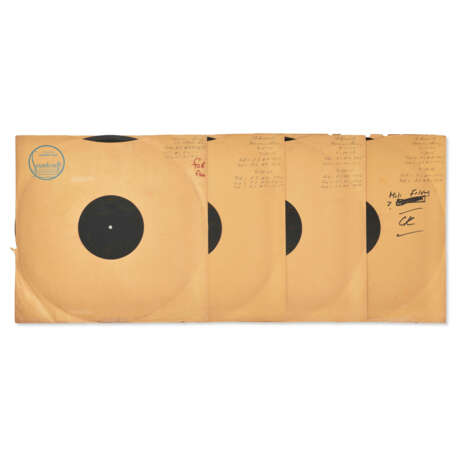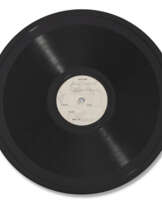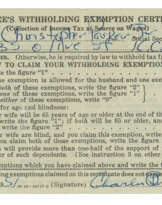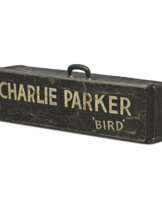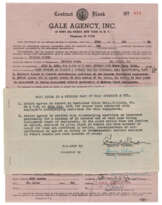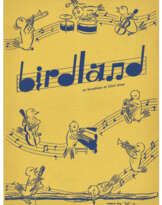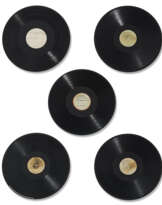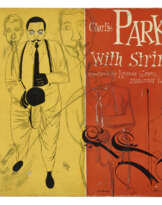Thirteen direct-to-disc acetates of studio recording sessions and Jazz at the Philharmonic recordings, organised by producer Norman Granz, 1944-1953
28.09.2023 13:00UTC +00:00
Classic
Starting price
10000GBP £ 10 000
| Auctioneer | CHRISTIE'S |
|---|---|
| Event location | United Kingdom, London |
| Buyer Premium | see on Website% |
Archive
The auction is completed. No bids can be placed anymore.

ID 1016367
Lot 185 | Thirteen direct-to-disc acetates of studio recording sessions and Jazz at the Philharmonic recordings, organised by producer Norman Granz, 1944-1953
Estimate value
£ 10 000 – 15 000
Charles “Charlie” Jr. Parker
PARKER, Charles “Charlie,” Jr (1920-1955).
Thirteen direct-to-disc acetates of studio recording sessions and Jazz at the Philharmonic recordings, organised by producer Norman Granz, 1944-1953.
Many of Norman Granz’ studio recording sessions pre-dated the wide use of magnetic tape for mastering. Sessions were recorded direct-to-disc on heavy lacquer coated aluminium discs, known as acetates. As the lacquer discs were expensive to produce, the engineer would record multiple takes on each disc. The producer would choose a master take for each song and use these ‘masters’ to cut the parts to press a finished record. These eleven direct-to-disc acetates include a number of master takes and alternate takes. As magnetic tape superseded direct-to-disc as the dominant recording format, Granz transferred his masters to tape, and the original lacquers were shelved. Horrified at the request to dispose of the superfluous session acetates in the late 1960s, Granz’ then assistant Eric Miller requested to keep them, to which Granz replied ‘Sure, it’ll give you something to do in your retirement.’
A number of the acetates were made during recording sessions for Norman Granz and Gjon Mili’s 1950 film project Improvisation and its predecessor Jammin’ The Blues. Granz and innovative Life magazine photographer Gjon Mili collaborated to shoot what many consider the greatest jazz film ever made – the 1944 Warner Bros. short Jammin’ The Blues. Nominated for an Academy Award for Best Short, the film gathered Lester Young and other prominent 1940s jazz musicians to recreate a jam session on film. Six years later, around September 1950, Mili and Granz shot footage and recorded audio for a sequel with members of the 1950 Jazz at the Philharmonic unit, including Lester Young and Ella Fitzgerald. One factor complicating the production was the difficulty of synching the film with the audio. Improvisation was shot in Mili’s New York studio, which was not sound-proofed, so the audio track had to be laid down in a separate studio, ahead of filming. According to Tad Hershorn, ‘the production was hampered by a shortage of funds that precluded the multiple cameras necessary to properly film and record the event simultaneously… “We pre-recorded, [Granz said in 1987], and then we tried to match it later on by shooting to it. But it really didn’t work.” In particular, Rich and Fitzgerald’s performances eluded the filmmakers’ attempt to synchronise image and sound. This footage, whose fate was the source of intense speculation for decades, was finally released in 1996 under the title Improvisation, a compilation of performances from the 1950s through the 1970s.’ Despite its shortcomings, Improvisation is a historically significant film for containing only the second film clip of Charlie Parker known to exist, and his only recorded musical meeting with Coleman Hawkins. Hershorn, 152-53.
Eleven 16-inch and two 13½-inch acetates, the 16-inch discs unlabelled but variously numbered and inscribed with chinagraph pencil, with original brown paper Soundcraft sleeves, variously inscribed in pencil with the client ‘Norman Granz’, track titles, matrix and take numbers, some dated, with later annotations in felt pen, the records comprising:
- The Opener and The Fast One with Lester Young, masters recorded for Jazz at the Philharmonic, Carnegie Hall, New York, 17-18 September 1949, the white ‘Carnegie Hall Recording Co. labels with typewritten details. Kock notes ‘Parker has a good solo on the opening blues, although he is a bit roughhouse.’ Koch, 167.
- Perdido with Ella Fitzgerald, extremely rare unreleased take, the B-side with Lady Be Good and Black Coffee by Ella, and a Buddy Rich solo on Flying Home, recorded for Jazz at the Philharmonic, Carnegie Hall, New York, 17-18 September 1949, the white ‘Carnegie Hall Recording Co. labels with typewritten details.
- Blues Fast, released master take, I’m In The Mood For Love, released master take and an incomplete take, recorded April 1950, New York.
- Released master takes for Machito’s Afro-Cuban Jazz Suite, including Cancion, Mambo, 6/8, Jazz and Rhumba Abierta, recorded 21 December 1948, New York. Koch notes: ‘the jazz portion of the suite is the most rewarding, it contains a fantastic chorus and fiery exchange between Bird and Phillips.’ Koch, 150.
- Lady Be Good, two released takes, recorded for Jazz at the Philharmonic, Philharmonic Auditorium, Los Angeles, 28 January 1946. Koch notes: ‘the two-chorus solo by Bird is a masterpiece.’ Koch, 82.
- JATP Blues, I Got Rhythm and I Found a New Baby, all released masters, recorded for Jazz at the Philharmonic, Embassy Auditorium, Los Angeles, 22 April 1946.
- After You’ve Gone and Can’t Get Started, edited versions released on 78rpm disc, recorded on two 13½-inch acetates for Jazz at the Philharmonic, Philharmonic Auditorium, Los Angeles, 28 January 1946.
- An Oscar For Treadwell and Mowhawk with Dizzy Gillespie and Thelonius Monk, released master takes, recorded 6 June 1950, New York. Koch notes: ‘Parker had not recorded with Gillespie in a studio setting since 1945. Therefore these recordings are a wonderful example of the growth of the two giants’. Koch, 186.
- Celebrity, released take used in Improvisation, three unreleased takes and a false start, recorded circa September 1950, New York, for the film short Improvisation.
- Body and Soul with Coleman Hawkins, four unreleased takes, recorded circa September 1950, New York, for the film short Improvisation.
- Body and Soul, unreleased take, Ballade, master take 3, used in Improvisation, and three unreleased takes, recorded with Coleman Hawkins, circa September 1950, New York, for the film short Improvisation. Koch notes: Bird joins the Hawk on one of his signature tunes… The filmed sequence shows what immense pleasure Parker took in sharing the stand with the older man.’ Koch, 220.
- Ballade with Coleman Hawkins, master take 4 used in Improvisation, Filmspot #1 with Ella Fitzgerald and Lester Young, unreleased take, Celebrity, two false starts, three master takes, two unreleased takes, recorded circa September 1950, New York, for the film short Improvisation.
housed in a custom clothbound slipcase; Provenance: Norman Granz (1918-2001; record producer) – Eric Miller (1941-2017; Granz’ assistant and protégé).
Further details
These recordings are offered for sale without copyright, broadcast rights, performers consents and other reproduction rights. The buyer must apply to the relevant parties to obtain such clearance and consents as may be necessary.
| Address of auction |
CHRISTIE'S 8 King Street, St. James's SW1Y 6QT London United Kingdom | |
|---|---|---|
| Preview |
| |
| Phone | +44 (0)20 7839 9060 | |
| Buyer Premium | see on Website | |
| Conditions of purchase | Conditions of purchase |
